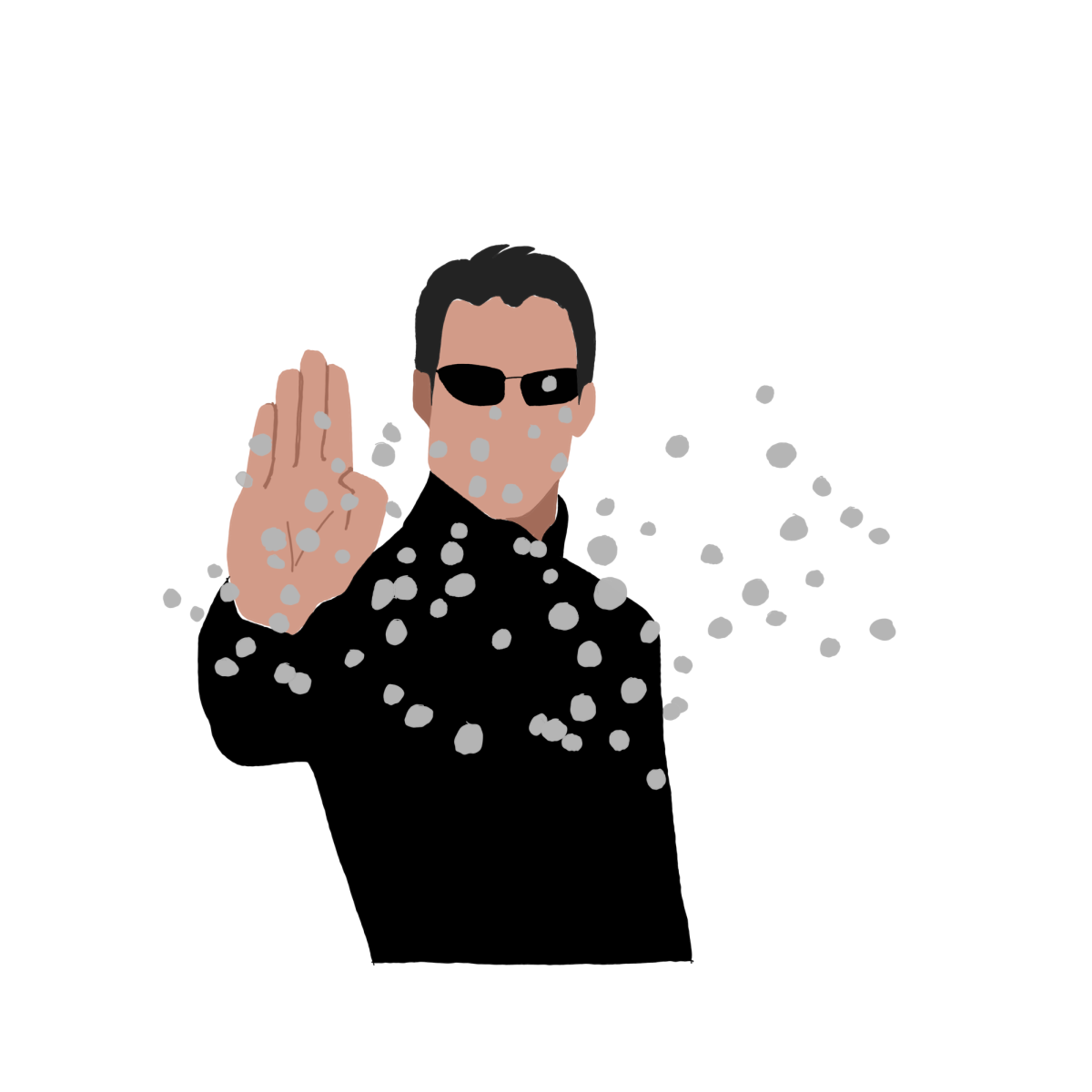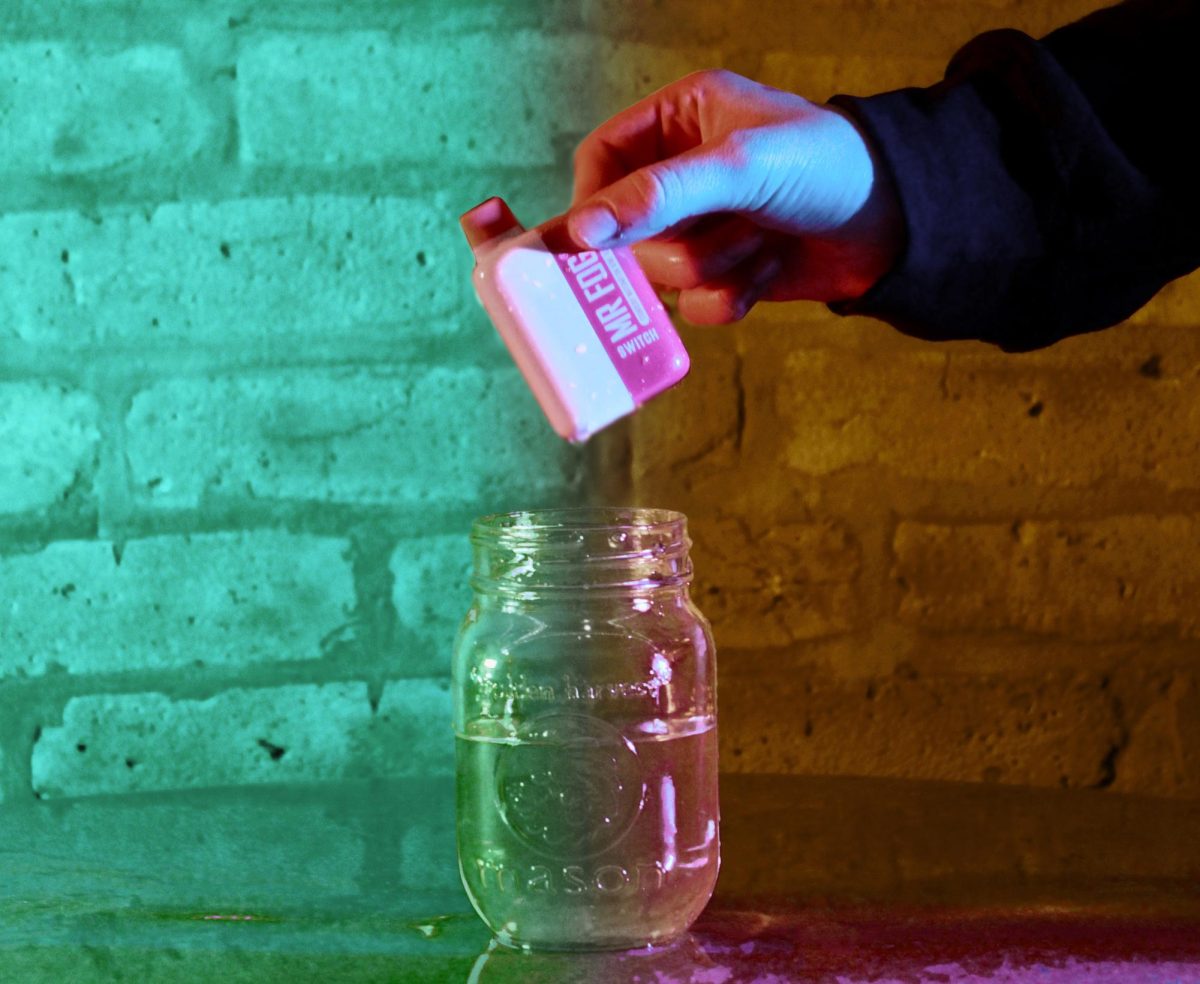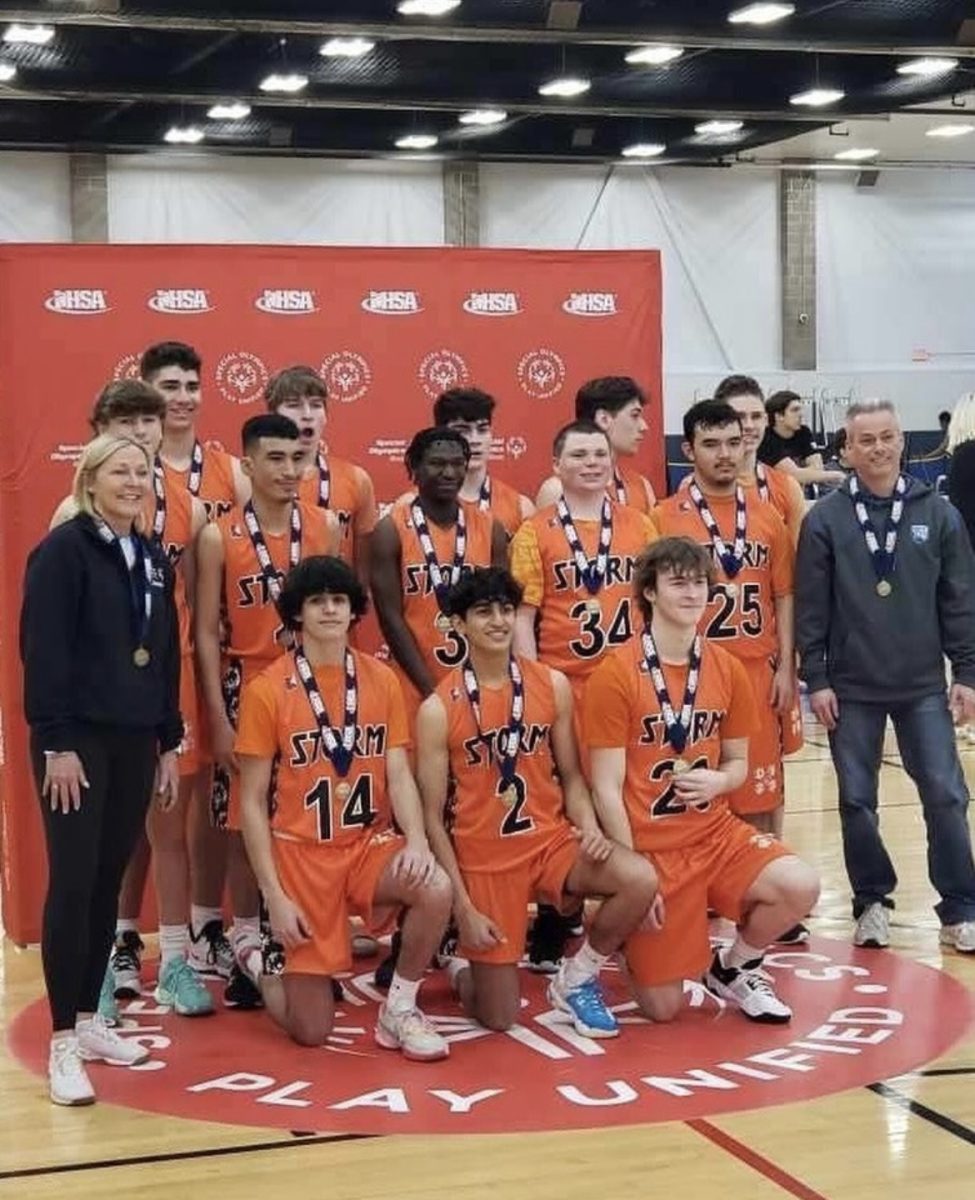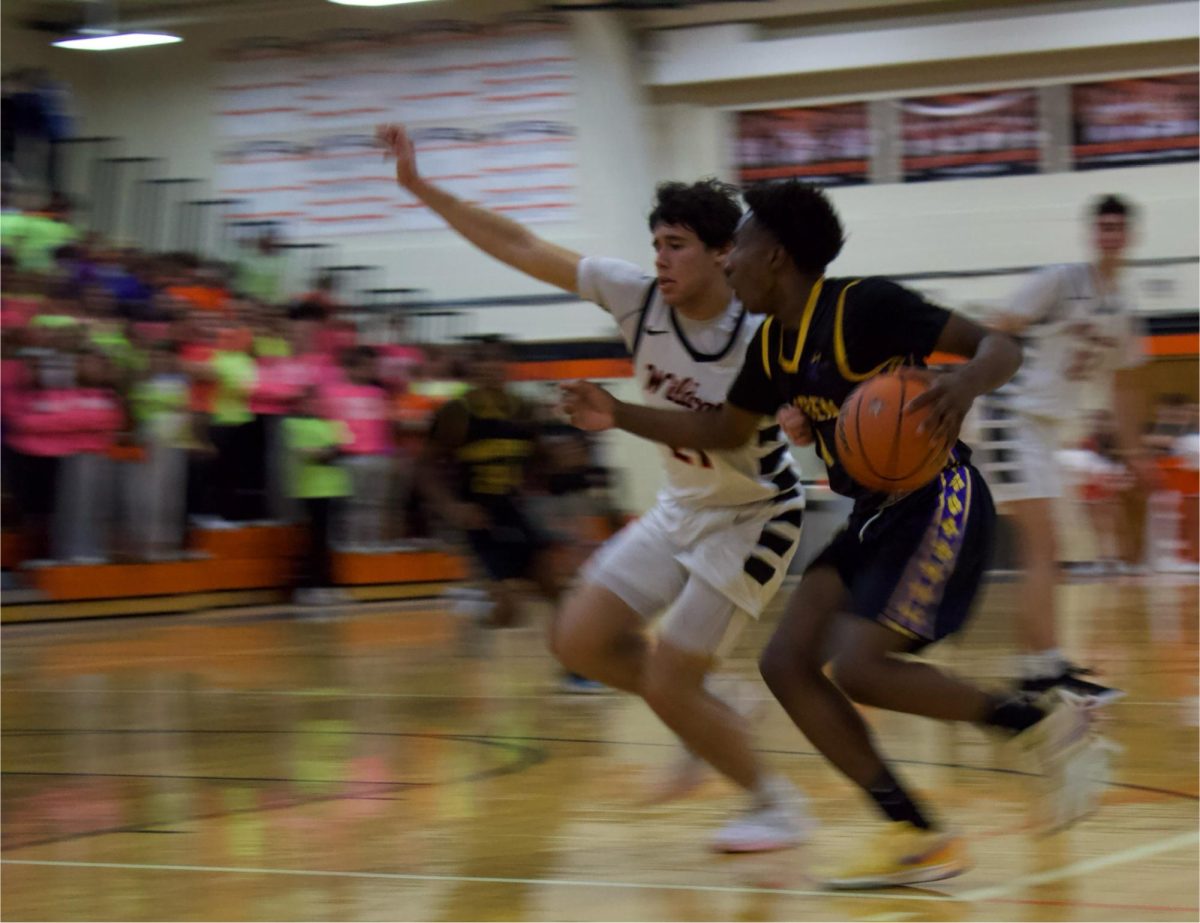Mental illness is everywhere. Maybe you have read or learned about it, maybe you know or love someone affected by it or maybe you are someone affected by it. No matter what your relationship with mental illness is, in some form or another, it does affect you.
According to the World Health Organization, one in four people will be affected by some sort of mental illness or disorder. For such a prevalent occurrence in each and every one of our lives, why is it so seldom talked about?
Through the stories of four individuals, DOI hopes to shed light on a subject that is quite often left in the dark. We want to tell the stories, not just of the following four students, but also of the 32 people who responded to our school-wide email seeking participants for this story, as well as the countless others who struggle with something every day.
Note: Due to the nature of this story and how sensitive and personal of a topic it is, two people in this article have elected to remain anonymous. As for the other two, we have used just their last initial to protect their privacy as well.
Anonymous #1
For this particular senior girl, mental health has been something she has struggled with for quite some time. After she began self-harming in eighth grade, this student was diagnosed with depression and anxiety her freshman year of high school.
Mental illnesses such as depression and anxiety can look very different from person to person. However, a common symptom found in those with depression, as well as one that she suffers from, is the feeling of isolation or loneliness.
“I didn’t see my parents as people who cared about me, and I didn’t see my friends as someone who would be upset if I made a permanent decision. I felt like I was alone in the world,” the student explained.
Although this student has had both depression and anxiety since her freshman year, it did not really “take a toll” on her until last year. She was taken out of school and put into a partial hospitalization program for people who are deemed at-risk and in need of more intensive therapy and help.
In the program, there were many different kinds of treatment, including art, group, dog, and yoga therapies. The patients in the program also learned different coping mechanisms, such as different patterns of breathing for when they are in a particularly stressful situation.
“[My parents] didn’t think [the programs] were helpful, but I did. Being around people who understood what I was going through and also constant therapy was something I needed,” she expressed.
After a month into the program, the student graduated. However, a month or two later, she had a “relapse” in which her anxiety took over.
“I could not function at all. I developed this paranoia, and I could not go to school because I thought everyone was plotting against me. It was crazy; I thought someone was coming to attack me,” she said.
Paranoia, which is a common occurrence in individuals with anxiety, can be absolutely crippling, as it was for this student. While anxiety can be described as constant worry, paranoia is more along the lines of constant and irrational fear. She was put in the hospital for a week and after that, she was later hospitalized again for “suicidal ideation.” After this, she attended therapeutic school. That’s when it really hit her.
“It was a crazy year. All of a sudden this switch went off and I was just sitting there wondering how this all happened. I had struggled before, but nothing like this. So I tried to focus on being normal,” she said.
Today, this student is doing significantly better. While she, of course, still deals with her depression and anxiety, and although some days are better than others, she has learned how to handle it better.
“I would never tell someone that it goes away because it never completely goes away, but it becomes manageable. You don’t learn how to get rid of it, you learn how to cope with it,” she said. “The tunnel doesn’t end, but lights come on and you can see. And maybe it does get better for some people. I wouldn’t know, but I think it becomes something you cope with. It’s like, you’re not proud of it, but you’re proud of where you’ve come from.”
Sage H.
LHS senior Sage Hart has struggled with depression, which for him, can range from being minor to impactful. Bullied at a younger age, he began to notice waves of sudden sadness in fifth grade which picked up in momentum and intensity when he entered high school.
Although he was never officially diagnosed with depression from medical professionals, Sage recognized the signs and sought out the help from friends and family alike.
While his depression spells can come out of thin air, some things do act as triggers, such as the periods of seasonal temperature changes, as well as the news and politics, both of which he follows closely. One of his biggest challenges is trying to get others to understand how one can go from feeling fine to melancholy within seconds.
“It really it is difficult to explain to people like, ‘Hey, I’m all of a sudden in a really bad mood and there’s no exact reason for that’,” Sage expressed.
For Sage, depression isn’t so much the feeling of sadness that most people view this condition as, but rather the feeling of being super sleepy, lethargic or very unmotivated. Recently, after breaking his arm, Sage was put him into a state of long-term minor depression; he missed a day of school due to the lack of motivation he had. He has missed school on other occasions, and while Sage thinks that others may view it as pure laziness if he told them why he missed school, he said that it’s not laziness but he “really just couldn’t do it.”
“What helps me get through harder times is [that] I really have a good mental check on the depression because I realize I can get depressed, [so] I can normally catch myself because I feel that, at least for me the main thing is being able to catch and realize that you’re depressed,” said Sage. “If you really don’t figure that out, or it takes you a while, that’s when you start getting into problems often.”
When Sage realizes that he is in a depressed mood, he takes actions to try to improve his mind set. One of Sage’s strategies includes taking time off of school work to do things he enjoys, such as listening to music, playing chess or a video game, or in his opinion the best remedy — getting a little extra sleep.
“My advice for anyone currently suffering from mental health is that with mental health, you really do need to seek help,” said Sage. “You really should find someone who can help you [in particular an adult], and look into ways to alleviate your depression when it comes. Try to get more sleep, to tell yourself jokes, do activities that will really help you out.”
Anonymous #2
Beginning early in freshman year, this sophomore was diagnosed with depression after she began to have suicidal thoughts, minor self-harm and other warning signs such as grade slips in seventh and eighth grades. She visited her counselor to discuss her thoughts, who then promptly contacted the student’s mom and set the student up with a social worker outside of school.
After being diagnosed, she was put on medication yet had to keep switching medications as they stopped working. The multitude of medication made her very tired and upset to the point where she no longer wanted to speak out in class for the fear others would laugh at her comments.
The anorexia started right after school began freshman year, caused by the anxiety and stress that school put on the student.
“I was so scared about what people thought of me that I wouldn’t eat because I felt like if I didn’t eat, I would be a better person,” she explained. The anorexia lasted for around six months and then proceeded to get better. “I still have bad thoughts and stuff, but it’s a lot more controlled now. I’m able to eat and able to do things.”
Luckily, this student was able to keep her grades up in school; however, the social aspect of her life began to suffer. Before the depression took its toll, she participated in a few clubs, but when her depression got particularly bad, she failed to show up. She was also invited by friends into groups for both Homecoming and Turnabout but declined so she could be left alone. Pushing nearly everyone away led to the loss of friends and the support from them. Yet, this student was still able to stick with a few friends whom she has known since kindergarden.
Due to other issues happening at home, bringing up issues to her family was a seldom occurrence, as she felt like she would be a burden to the family.
The depression and anxiety are still an issue looming over this student today, however they are being helped by taking medication and being in an LST support group.
“[Depression] affects so many kids now, and it shouldn’t be something that you should be scared to talk about because it doesn’t matter if you are judged or not,” she expressed. “…You’re still a good person, it’s not something that’s gonna change you forever. It’s something you just need to focus on fixing for yourself.”
Anonymous #3
Officially, this senior, has dealt with anxiety and depression for three years now. Unofficially, she has struggled far longer than that, recalling her anxiety even as a young kid. However, both her depression and anxiety really took hold when she entered high school.
“It started freshman year with the switching of schools, my friend group changing, and people just changing. I went through a lot of lonely times and that was really hard. I lost interest in a lot of things, like dancing. My focus in school was really bad, my grades slipped, it was a mess,” she recalled.
To combat the bad days and make the good days better, her personal solution involves “spending time with good people, sleeping and focusing on what’s important.”
“In high school, you have to realize what is really important and it has taken me all four years, but I finally understand that putting all your effort and time and stress into things that are not valuable to me is just not a priority,” she said. “Focusing on what makes me happy and having good relationships and doing activities that I really enjoy, those are my priorities.”
For many people, it is very typical to want to keep their mental illness hidden and secret. However, this is not the case for this student.
“When you have depression, it’s just such a big part of your life. To me, it’s weird to not talk about it. [Talking about your mental illness] is seen as kind of a taboo thing that comes with all of these stereotypes, and some of them just aren’t true,” she said. “Depression affects so many different kinds of people; there are so many people going through similar stuff as you and you would never know.”
Today, both anxiety and depression still affect this student, but her outlook on her experiences is one of a positive mindset.
“You should never be afraid of people judging you, because people will judge you no matter what,” she said. “Say what you want and do what you want. It will be worth it in the end.”
These four stories represent many other students at LHS, including the 32 others who responded to an email seeking sources for this article. Mental illnesses can be hard and scary and lonely, but there is always someone available who can help. The social workers in the LSTs are always available to dedicate time to lend a listening ear. There are hotlines — the National Suicide Prevention Lifeline (800-273-8255); the National Institute of Mental Health Information Center (866-615-6464); the Eating Disorders Center (888-236-1188); the Samaritans Crisis Response Hotline (212-673-3000) —
that have people working 24/7 and are there to simply listen. Erika’s Lighthouse is a club at LHS that addresses mental illness every Wednesday.
No matter where you are, there is someone, somewhere, who can help you and wants to help you.














![For the final piece, a combination of Symphony Orchestra and Wind Ensemble played an extravagant song by Paul Hindemist. Flute soloist Dakota Olson had her moment highlighted within this song. “[My solo] was definitely challenging but it was fun too,” Olson said.](https://www.lhsdoi.com/wp-content/uploads/2024/03/amy-and-joey-shot-1200x800.jpg)



